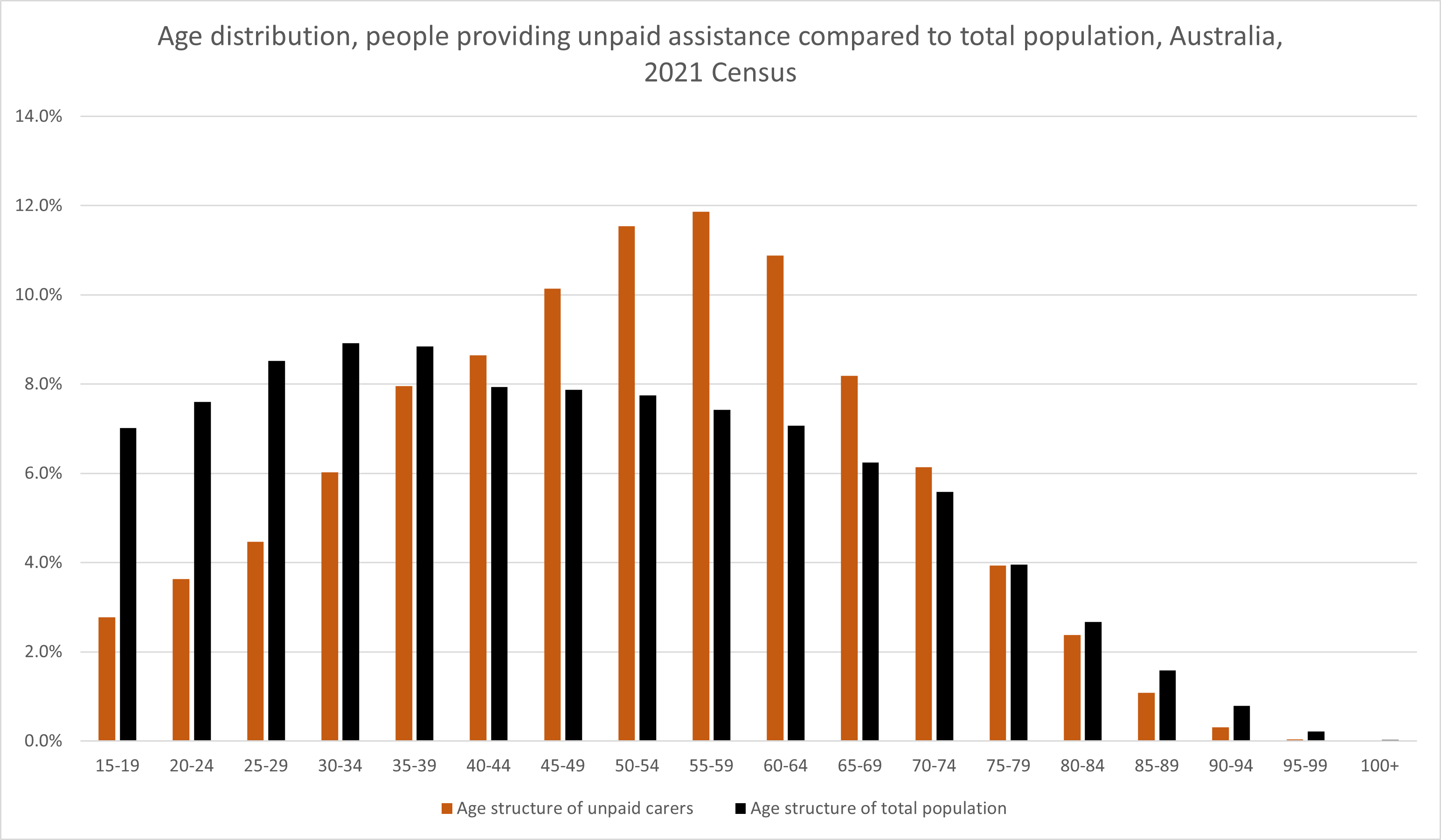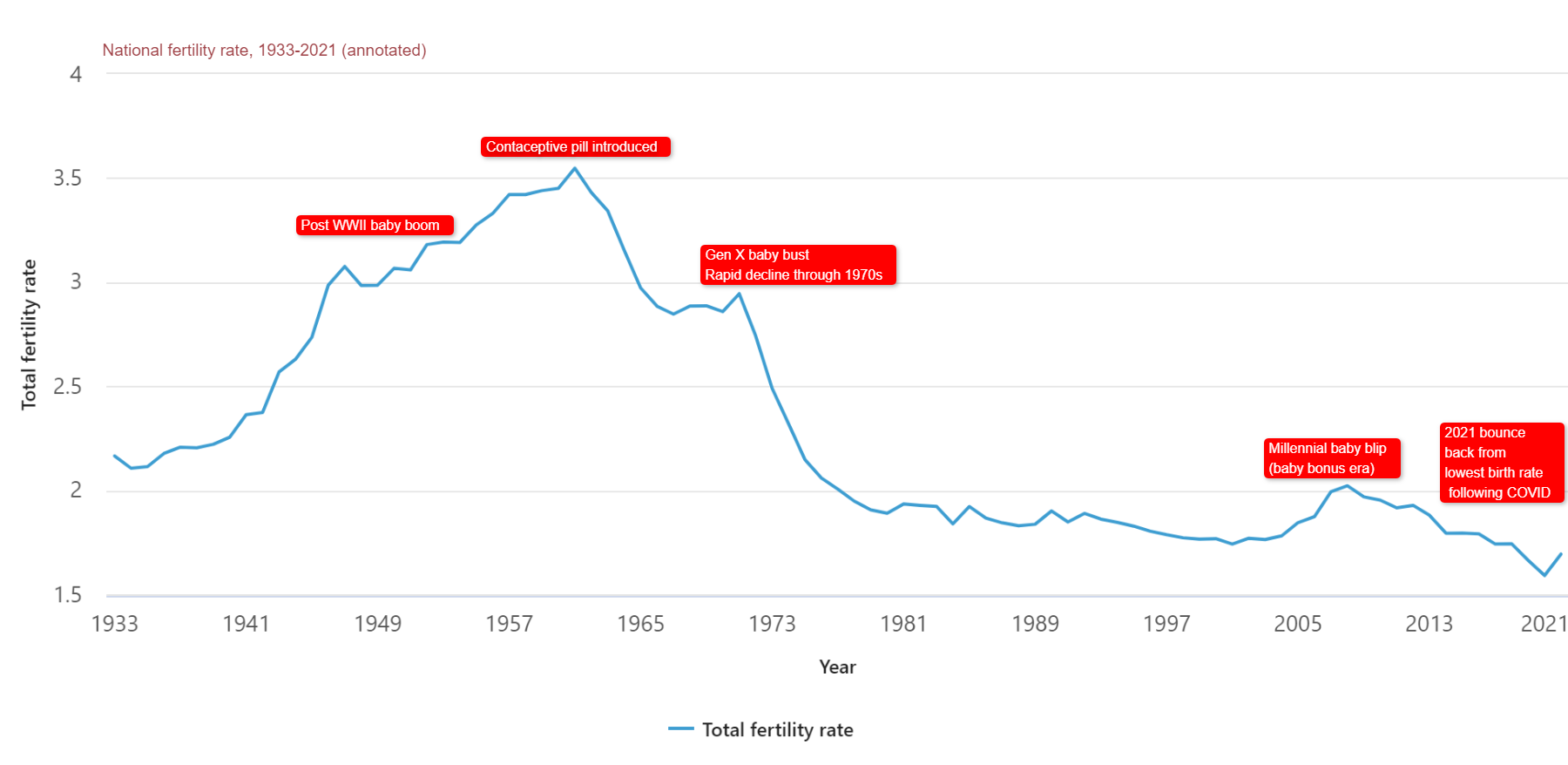In a class I attended few days back, my tutor gave us a handout about unpaid work in Australia taken from 1997 statistics collated by the Australian Bureau of Statistics (ABS). The abstract, which I sussed out from Google after class, read (For the full media release, click here):
“The value of unpaid work – 91 per cent of it unpaid household work – was about $261 billion in 1997, equivalent to about 48 per cent of Australia’s gross domestic product (GDP)… Unpaid household work contributed $237 billion (or 91 per cent) to the total value of unpaid work in 1997. Females accounted for 65 per cent of the value of unpaid household work.” – Source: Australian Bureau of Statistics (ABS), 2000, Media Release
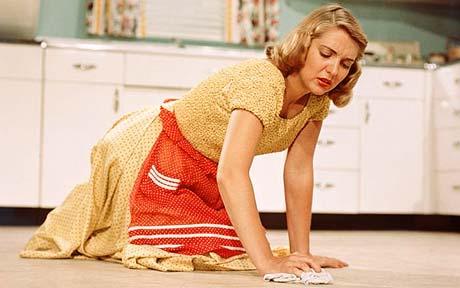
Apart from being slightly taken aback by the numbers, I was even more concerned to hear that these statistics are not released anymore. In my mind, I thought, “I’m sure I’ve seen these stats somewhere. I even filled in something about unpaid work in my Census 2011 form!” And so, my journey in search for this data began…
I decided to go back to Glenn’s blog on “Who are Australia’s Volunteers?”. He touched on who the volunteers in Australia are, where they come from, and how old they are etc. So I confirmed two things: 1) No one has written about unpaid domestic work 2) Information about unpaid work existed!
Looking through .id’s demographic profile of Australia and the ABS’s website, I managed to get some interesting information about unpaid domestic work.
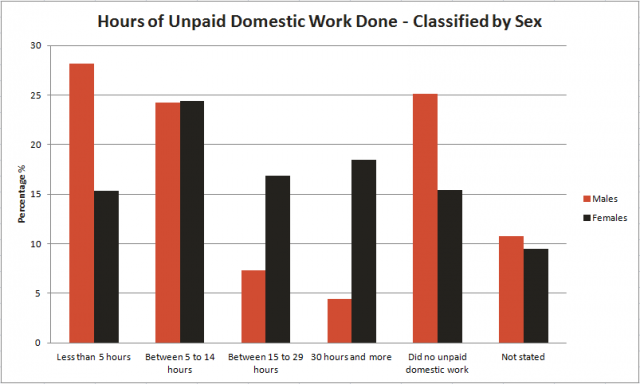
Source: Australian Bureau of Statistic, Census of Population and Housing, 2006: (enumerated)
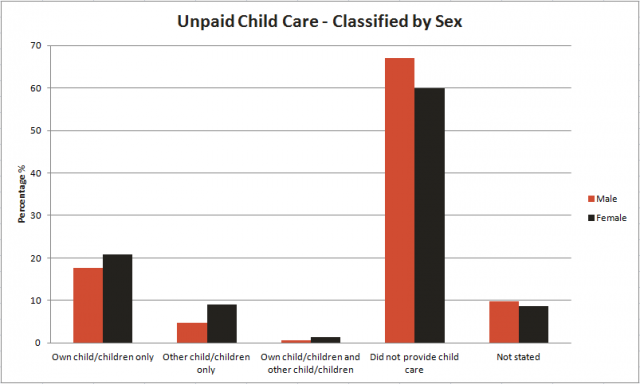
Source: Australian Bureau of Statistic, Census of Population and Housing, 2006: (enumerated)
For one, women are still putting in more hours doing household chores and taking care of kids than men in general.
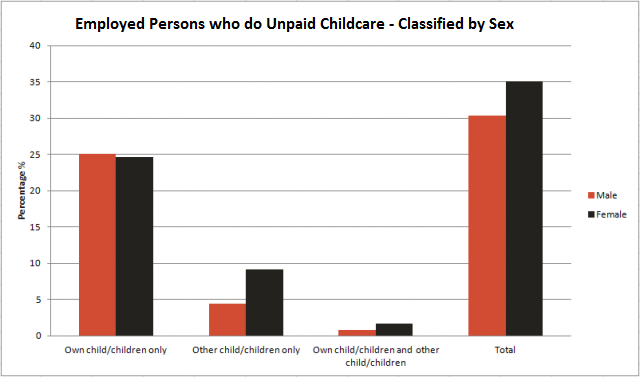
Source: Australian Bureau of Statistic, Census of Population and Housing, 2006: (enumerated)
But to credit them, men who are employed are almost as likely as women to take responsibility for their own children (or even other children!).
However, no matter how hard I search, the value, in monetary sense, of unpaid domestic work is no longer available as a public resource. Nonetheless, although the value of their work is not quantified byeconomists, we should recognise that these people, be it our mums, dads, grannies, gramps, partners, spouses or even housemates, are daily heroes who keep our homes clean, cook our dinners and/or take care of our children.
If you know of a source of information about the value of unpaid domestic work, please leave me a comment.
Learn more about unpaid work in Australia here
.id is a team of demographers, population forecasters, spatial planners, urban economists, and data experts who use a unique combination of online tools and consulting to help governments and organisations understand their local areas. Access our free demographic resources here






